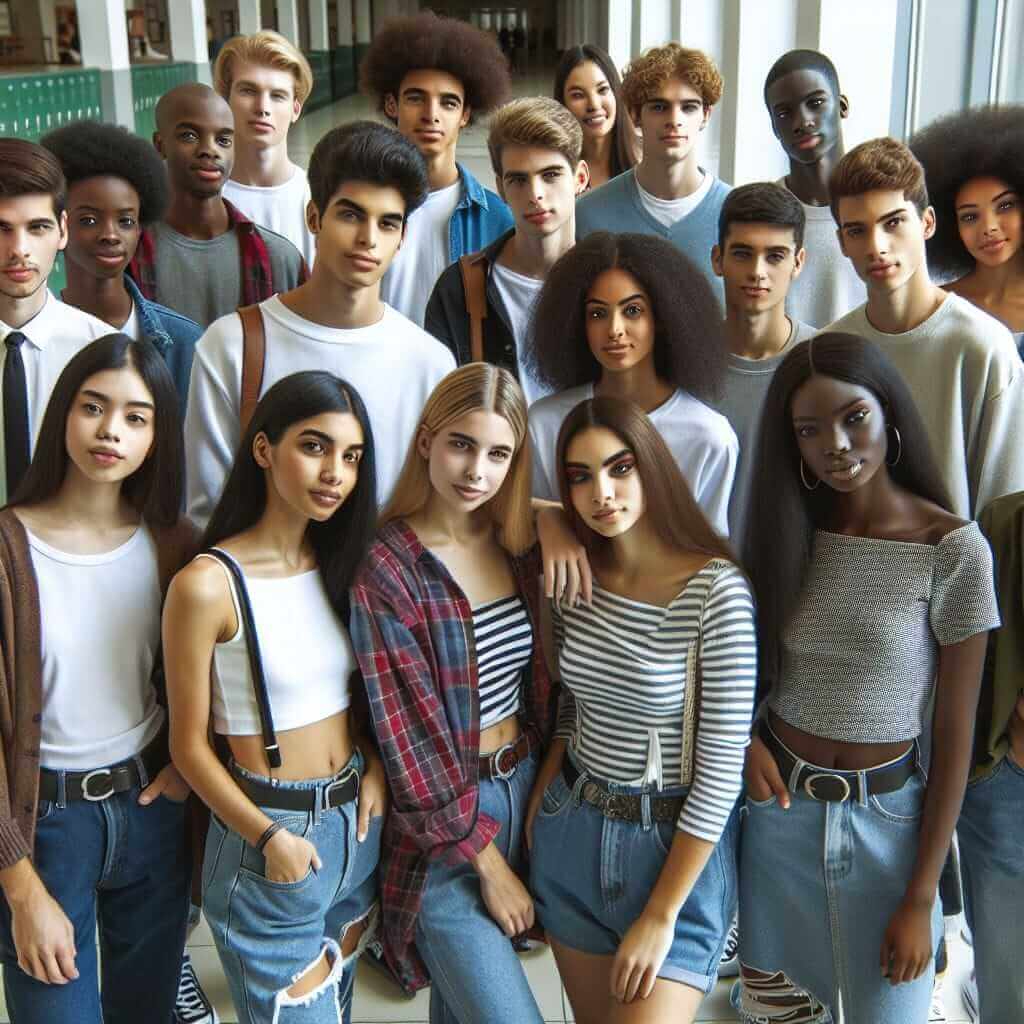As an IELTS instructor with over 20 years of experience, I often encounter students grappling with the “Should students wear makeup to school?” topic. This question, frequently appearing in the IELTS Speaking test, explores societal expectations, personal choices, and school environments. This article provides a comprehensive analysis of the topic, equipping you with the necessary vocabulary and arguments to confidently express your viewpoint.
Understanding the “Should Students Wear Makeup to School?” IELTS Topic
The crux of this IELTS topic lies in exploring the arguments for and against students wearing makeup in a school setting. You might be asked to provide your opinion, discuss both sides objectively, or analyze the implications of such choices.
Key Vocabulary
Using precise and varied vocabulary can significantly enhance your IELTS Speaking score. Here are some terms relevant to this topic:
- Appearance: The way someone looks.
- Conformity: Behavior in accordance with socially accepted conventions.
- Individuality: Qualities that distinguish one person from another.
- Self-esteem: Confidence in one’s own worth.
- Distraction: Something that prevents concentration.
- Dress code: A set of rules about what clothing may be worn.
- Peer pressure: Influence from members of one’s peer group.
- Appropriate: Suitable or proper for a particular time, place, or occasion.

Discussing “Should Students Wear Makeup to School?” in the IELTS Speaking Test
Let’s explore how this topic might manifest in different parts of the IELTS Speaking test:
Part 1: Introduction and Interview
You may be asked general questions about appearance and school life, like:
- “Do you think appearance is important?”
- “What is the school dress code like in your country?”
- “Do you think students are influenced by their peers when it comes to fashion choices?”
Answer authentically and aim for clear, concise responses.
Part 2: Individual Long Turn
You could receive a cue card like:
“Describe a time you saw someone who looked different from everyone else. You should say:
- Who this person was
- Where you saw them
- What they looked like
- And explain how you felt about this person.”
While this may not directly address makeup, it allows you to showcase vocabulary related to appearance, individuality, and societal norms, which are transferable skills for the “Should students wear makeup to school?” discussion.
Part 3: Two-Way Discussion
The examiner may engage you in a deeper conversation, exploring:
- “Do you think schools should have strict dress codes?”
- “What are the advantages and disadvantages of students wearing makeup to school?”
- “How has the perception of beauty changed over time?”
This is your opportunity to demonstrate critical thinking, provide balanced arguments, and use advanced vocabulary.
Example Arguments and Discussion Points
Arguments for students wearing makeup to school:
- Boosts self-esteem and confidence: Makeup can help students feel more self-assured and comfortable in their own skin.
- Self-expression and creativity: Makeup can be an outlet for creativity and expressing personal style.
- Prepares for professional world: Learning to apply makeup appropriately can be seen as a life skill, particularly for future careers where presentation is important.
Arguments against students wearing makeup to school:
- Distraction from studies: Focusing on appearance and makeup might detract from academic pursuits.
- Peer pressure and conformity: It can exacerbate social anxieties and pressure to conform to unrealistic beauty standards.
- Age-appropriateness: Some argue that heavy makeup is not suitable for a school environment.
Tips for Success
- Expand your vocabulary: Use the terms provided and seek out synonyms and related phrases.
- Practice structuring your responses: Employ connectors like “Firstly,” “Secondly,” “However,” and “In conclusion” to ensure a coherent flow.
- Provide relevant examples: Illustrate your points with personal anecdotes or observations while remaining respectful of cultural sensitivities.
Remember, there’s no right or wrong answer to the “Should students wear makeup to school?” question. The key is to express yourself clearly, confidently, and respectfully while demonstrating a strong command of English. By following these tips and practicing your speaking skills, you’ll be well-equipped to tackle this topic and excel in your IELTS Speaking test.